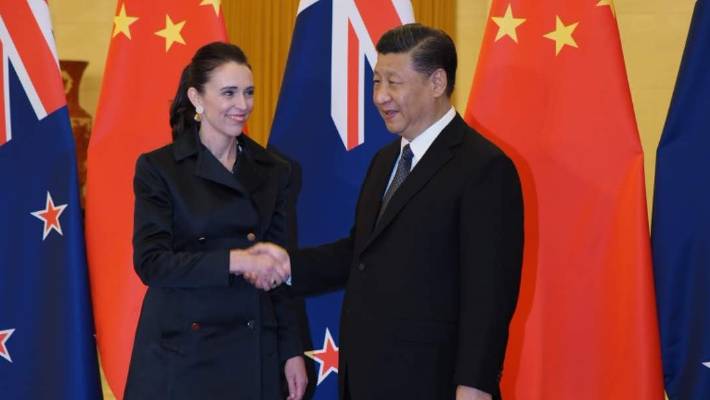If The Nazis Had Won World War II

The common perception of World War II is that, had the Nazis won it, the world would now be a wasteland of rubble and burning wreckage. It’s true that the world would certainly be different in some major ways to the timeline we currently live in, but there are many things that would be recognisable. This essay asks the question: what would our societies look like today if the Nazis had won World War II?
If the Nazis had won World War II, and united all of Europe under one Reich, our political leaders would have found an accommodation with it. If the Nazis had knocked out the Soviet Union and made peace with Britain, our political leaders would have shrugged, said “fair enough” and started to do business with the new bosses.
Some might doubt this, but an examination of history and human nature make it very clear. If the Nazis had won World War II, our political class would be lining up to whore themselves out to them.
If the Nazis had won World War II, and established a Lebensborn project to populate Poland with German settlers, and if this had led to an excess population such that many of these Germans sought to emigrate to other countries, our political system would tell us that this was a good thing. We would be told that we had to accept it otherwise we were evil.
Politicians all around the world would be clamouring to curry favour with the Nazi Empire by forming trade and diplomatic links with Nazi territories, or by agitating in favour of further immigration from Nazi territories or by attacking those who criticise Nazi actions. These politicians would dismiss anyone who accused them of siding with evil as conspiracy theorists, bigots and haters.
Politicians of German ancestry would be climbing onto social media saying that it’s hate speech to mention the Hungerplan, or that the Hungerplan didn’t really happen, or that the Poles deserved it because of genocidal attacks on Germans in Polish territory in the lead up to World War II. As with the Armenian genocide, a sufficiently strenuous denial would cause people to either doubt or to not care.
Many outside Europe would have ended up marrying Germans once the war tensions cooled off (as they have done in this timeline). They would say “Yes, the Nazis are evil, but Ulrike/Heike/Beate is against all that stuff.” Some of the fathers of these brides and grooms would be Nazi Party functionaries, and would have done some horrific things, but their sons and daughters-in-law would operate on a “Don’t ask, don’t tell” basis.
If the Nazis had won World War II, it would be an accepted fact that the Nazi Empire was too big to not trade with. People would say “Yeah I know that they starved a hundred million people to death but you can’t just not trade with an entity that comprises X% of the world’s GDP.” Even if they still had millions in concentration camps this would not matter.
No doubt the Nazi Empire would have established a competitive advantage in some economic manner, such as vehicle manufacture. It might be possible that the whole world would be driving German-made cars, or flying in German-made aircraft. In such a case, most people wouldn’t think anything of using such goods. Some might make jokes about the tens of millions who were exterminated to make it possible, but this wouldn’t prevent trade any more than the North American genocides prevent trade.
Had the Nazis won World War II, there would be politicians and pundits trying to curry favour with them by talking about Naziphobia. An excessive dislike of Nazis would be likened to a mental illness by politicians and by media enterprises chasing the Nazi advertising dollar. There would be mutterings that hate speech legislation ought to be introduced to prevent people from being too open about their dislike of Nazism.
If the Nazis still had people in camps, their plight would be ignored, save for the propagandising of a small number of social justice activists. These activists would widely be seen as obsessed or unhinged. In much the same way that the imprisonment of many Uighur people is dismissed as an outcome of the Uighurs’ religious fanaticism, so too would the imprisonment of the Jews be dismissed as an outcome of their predations.
If the Nazis had won World War II, our entire education system would be different. Naturally, we wouldn’t be taught that Germany started World War II by invading Poland. We would instead be taught about the German Revolution of 1918-19, and who was behind that revolution. We would be taught about the Holodomor, and how the Holodomor influenced anti-Communist attitudes in central Europe in the 1920s.
Nazism more general would be seen as an anti-Communist movement that arose in response to the horrors of Soviet rule. The role of the British and the French in forcing the Versailles Treaty on the Germans after World War I would be emphasised. The psychological effect of hyperinflation would be explained at length to all schoolchildren.
Perhaps it may even have been necessary, had the Nazis won World War II, to accept that many of the actions of the British and French Empires in colonising the world were effectively criminal. Perhaps conquering 40 million square kilometres of territory and then declaring war on Germany was a bit hypocritical. Winning the war meant we never had to face up to this charge, but losing it would have meant that we were forced to.
None of this is to say that the world would have been any better if the Nazis had won World War II. The fact is, however, that a Nazi victory in Europe would not have changed human nature in any way. Humans would still be opportunistic, acquisitive and dishonest. The winners would still write the history books, and they would still do so in a way that absolved them of all guilt.
*
If you enjoyed reading this essay, you can get a compilation of the Best VJMP Essays and Articles of 2018 from Amazon for Kindle or Amazon for CreateSpace (for international readers), or TradeMe (for Kiwis). A compilation of the Best VJMP Essays and Articles of 2017 is also available.
If you would like to support our work in other ways, please consider subscribing to our SubscribeStar fund.






